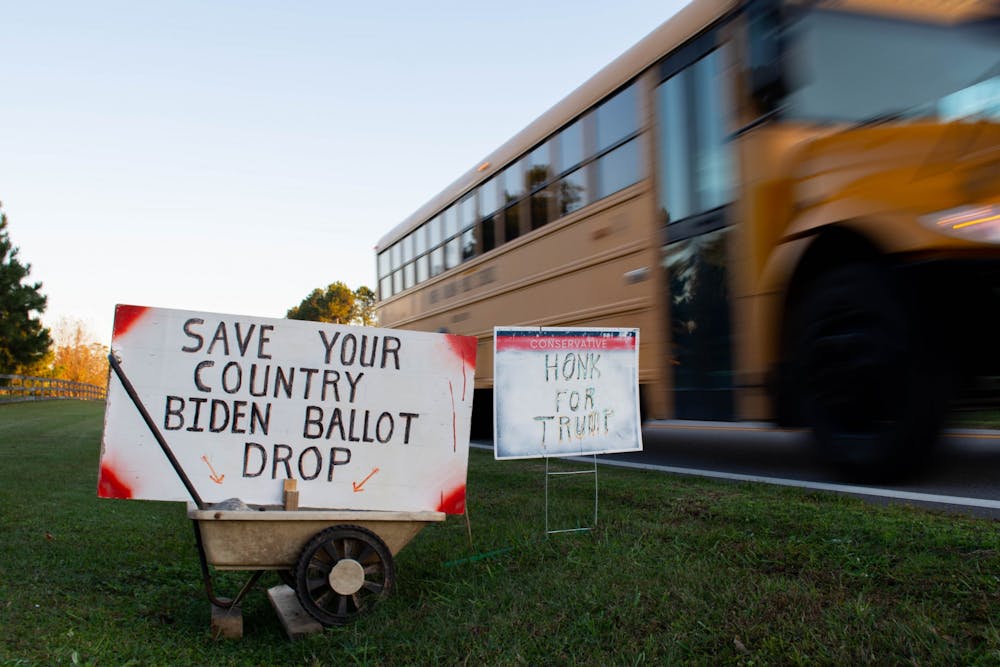Each ballot, he said, is marked with a serial number that is directly connected to a voter’s record, which is kept track of in an electronic poll book. As soon as a voter’s ballot is mailed in and their vote is counted, the voter is removed from the system and can no longer vote again, either by mail or in person.
In the event that someone who requested a mail-in ballot changed their mind and wanted to vote in person, Cox said the absentee ballot would be spoiled — preventing it from being counted — as soon as the county processed the ballot that person cast at their polling place.
“There’s a lot of misinformation and disinformation out there, but the system is actually very secure,” Cox said.
He and Sims said their counties have been conducting all of their elections board meetings publicly, too, with the intent of increasing transparency and increasing voters’ confidence in the system.
Counting votes and keeping them safe
The process of counting and processing votes begins long before Election Day.
Sims said voting machines in North Carolina, which must be certified by the U.S. Election Assistance Commission per state regulation, are tested and prepared for Election Day.
He said hundreds of thousands of test ballots were run through the machines before people even began voting. This tested all of the different combinations of votes that could possibly be cast to check if the machines were recording the correct results.
Once a polling site opens, all of the activities occurring within it are observed by a body of bipartisan poll watchers and trained officials. After the final vote is cast at a polling site, the public is able to observe how poll workers close up the machines and begin the final tabulation process.
He said the paper ballots are counted, then locked away so they can later be recounted and audited if necessary. The results are tabulated and recorded on different data tapes, one for each voting machine. Then, this data is collected, recorded onto an encrypted data stick and sent to the State Board of Elections so the data can be added to its elections portal.
Sims said neither the voting machines themselves nor any of the methods of data collection and transfer are ever connected to the internet, since that is banned by state law.
He added that the data sticks and tapes used to record the data are only used on the night of the given election, stored away and never to be used again in high-security facilities operated by the state and county boards of elections. In Wake County’s facilities, Sims said security was the top priority.
To get the day's news and headlines in your inbox each morning, sign up for our email newsletters.
“We have security inside of security," Sims said. "We have our own ballot cage with restricted access to it. It has its own alarm system even though our building has its own alarm system. It’s everything you can think of taken to the next level. That’s always what we’re working with.”
The State Board of Elections website goes further into detail about how the state certifies the results of the election after the polls close. The board's website said both the state and county boards of elections conduct audits to check for irregularities, such as equipment tampering or tabulation errors.
The state board also said it is one of few state elections boards across the country that have their own separate investigations division, which investigates reports of fraud and irregularities and refers cases to state prosecutors when warranted by evidence.
How confident should voters be?
State representatives and election officials alike have stressed the need for election security, and the pandemic has only served to increase the issue’s importance.
N.C. Rep. Jay Adams, R-Catawba, said in an email that the N.C. General Assembly has taken a number of legislative actions this year to deal with the extraordinary measures brought about by the pandemic.
However, he remains concerned about mail-in ballots and the possibility for voter fraud. He said he believes mail-in ballots present a number of issues that he could not briefly describe in his statement. He also said he believes spreading out the process of counting mail-in ballots should allow for counting to be more accurate.
“Regarding voter/election fraud; I think it is prudent to take measures and build appropriate defenses to prevent such activity,” Adams said in the email. “A vote cancelled by fraud is just as important as a vote surpassed or a vote not counted.”
But N.C. Sen. Natalie Murdock, D-Durham, said she believes voter fraud is not as big of a concern as it’s being made out to be. She said she believes the phenomenon is practically nonexistent, and that she is not aware of any data that substantiates any claims of widespread voter fraud.
She also said she believes misinformation about the true security of the election can reduce voter confidence. But she said there are a multitude of safeguards in place to prevent fraud.
“I just stress to everyone that that is not a reason not to vote," she said. "You need to vote. You need to make sure your vote counts."
Sims said he has not seen anything near the amount of voter fraud that has been alleged by others. But he acknowledged that fraud is still a concern that needs to be addressed.
“There are always people that could have and do have bad intentions," he said. "So that’s why we have to make sure we’re constantly putting in as many safeguards as we can to make sure that people’s votes are counted and they are properly counted.”
@GMolero1
@DTHCityState | city@dailytarheel.com




